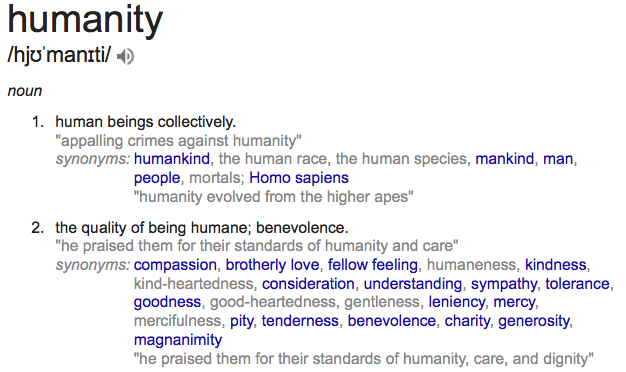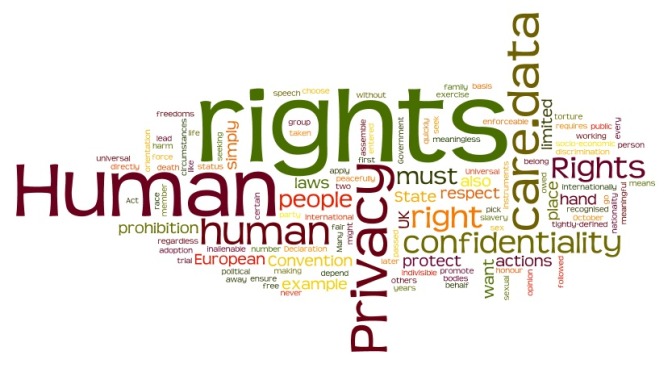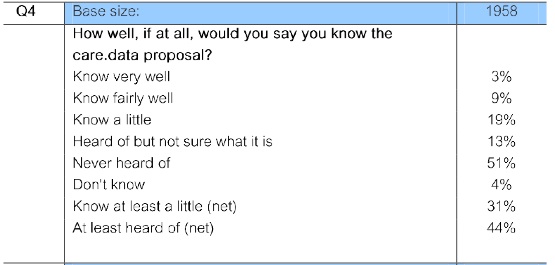The long running rumours of change afoot on human rights political policy were confirmed recently, and have been in the media and on my mind since.
Has human value become not just politically acceptable, but politically valuable?
Paul Bernal in his blog addressed the subject which has been on my mind, ‘Valuing the Human’ and explored the idea, ‘Many people seem to think that there isn’t any value in the human, just in certain kinds of human.’
Indeed, in recent months there appears to be the creation of a virtual commodity, making this concept of human value “not just politically acceptable, but politically valuable.” The concept of the commodity of human value, was starkly highlighted by Lord Freud’s recent comments, on human worth. How much a disabled person should earn was the focus of the remarks, but conflated the price of labour and human value.
European Rights undermined
Given the party policy announcements and the response by others in government or lack of it, it is therefore unsurprising that those familiar with human rights feel they will be undermined in the event that the policy proposals should ever take effect. As the nation gears up into full electioneering mode for May 2015, we have heard much after party speeches, about rights and responsibilities in our dealings with European partners, on what Europe contributes to, or takes away from our sovereignty in terms of UK law. There has been some inevitable back-slapping and generalisation in some quarters that everything ‘Europe’ is bad.
Whether or not our state remains politically within the EU may be up for debate, but our tectonic plates are not for turning. So I find it frustrating when politicians speak of or we hear of in the media, ‘pulling out of Europe’ or similar.
This conflation of language is careless, but I fear it is also dangerous in a time when the right wing fringe is taking mainstream votes and politicians in by-elections. Both here in the UK and in other European countries this year, far right groups have taken significant votes.
Poor language on what is ‘Europe’ colours our common understanding of what ‘Europe’ means, the nuances of the roles organisational bodies have, for example the differences between the European Court of Human Rights and the European Court of Justice, and their purposes are lost entirely.
The values imposed in the debate are therefore misaligned with the organisations’ duties, and all things ‘European’ and organisations are tarred with the same ‘interfering’ brush and devalued.
Human Rights were not at their heart created by ‘Europe’ nor are they only some sort of treaty to be opted out from, [whilst many are enshrined in treaties and Acts which were, and are] but their values risk being conflated with the structures which support them.
“A withdrawal from the convention could jeopardise Britain’s membership of the EU, which is separate to the Council of Europe whose members are drawn from across the continent and include Russia and Ukraine. Membership of the Council of Europe is a requirement for EU member states.” [Guardian, October 3rd – in a clearly defined article]
The participation in the infrastructure of ‘Brussels’ however, is convenient to conflate with values; a loss of sovereignty, loss of autonomy, frivoulous legislation. Opting out of a convention should not mean changing our values. However it does seem the party attitude now on show, is seeking to withdraw from the convention. This would mean withdrawing the protections the structure offers. Would it mean withdrawing rights offered to all citizens equally as well?
Ethical values undermined
Although it varies culturally and with few exceptions, I think we do have in England a collective sense of what is fair, and how we wish to treat each others as human beings. Increasingly however, it feels as though through loose or abuse of language in political debate we may be giving ground on our ethics. We are being forced to bring the commodity of human value to the podium, and declare on which side we stand in party politics. In a time of austerity, there is a broad range of ideas how.
Welfare has become branded ‘benefits’. Migrant workers, ‘foreigners’ over here for ‘benefit tourism’. The disabled labeled ‘fit for work’ regardless of medical fact. It appears, increasingly in the UK, some citizens are being measured by their economic material value to contribute or take away from ‘the system’.
I’ve been struck by the contrast coming from 12 years abroad, to find England a place where the emphasis is on living to work, not working to live. If we’re not careful, we see our personal output in work as a measure of our value. Are humans to be measured only in terms of our output, by our productivity, by our ‘doing’ or by our intrinsic value as an individual life? Or simply by our ‘being’? If indeed we go along with the concept, that we are here to serve some sort of productive goal in society on an economic basis, our measurement of value of our ‘doing’, is measured on a material basis.
“We hear political speeches talking about ‘decent, hardworking people’ – which implies that there are some people who are not as valuable.”
I strongly agree with this in Paul’s blog. And as he does, disagree with its value statement.
Minority Rights undermined
There are minorities and segments of society whose voice is being either ignored, or actively quietened. Those on the outer edge of the umbrella ‘society’ offers us, in our collective living, are perhaps least easily afforded its protections. Travelers, those deemed to lack capacity, whether ill, old or young, single parents, or ‘foreign’ workers, to take just some examples.
I was told this week that the UK has achieved a first. It was said, we are the first ‘first-world’ country under review by the CPRD for human rights abuse of the disabled. Which cannot be confirmed nor denied by the UN but a recent video indicated.
This is appalling in 21st century Britain.
Recently on Radio 4 news I heard of thousands of ESA claimants assigned to work, although their medical records clearly state they are long term unfit.
The group at risk highlighted on October 15th in the Lords, in debate on electoral records’ changes [col 206] is women in refuges, women who feel at risk. As yet I still see nothing to assure me that measures have been taken to look after this group, here or for care.data.{*}
These are just simplified sample groups others have flagged at risk. I feel these groups’ basic rights are being ignored, because they can be for these minorities. Are they viewed as of less value than the majority of ‘decent, hardworking people’ perhaps, as having less economic worth to the state?
Politicians may say that any change will continue to offer assurances:
“We promote the values of individual human dignity, equal treatment and fairness as the foundations of a democratic society.”
But I simply don’t see it done fairly for all.
I see society being quite deliberately segmented into different population groups, weak and strong. Some groups need more looking after than others, and I am attentive when I hear of groups portrayed as burdens to society, the rest who are economically ‘productive’.
Indeed we seem to have reached a position in which the default position undermines the rights of the vulnerable, far from offering additional responsibilities to those who should protect them.
This stance features often in the media discussion and in political debate, on health and social care. DWP workfare, JSA, ‘bedroom tax’ to name but a few.
How undermining Rights undermines access
So, as the NHS England five year forward plan was announced recently, I wonder how the plan for the NHS and the visions for the coming 5 year parliamentary terms will soon align?
There is a lot of talking about plans, but more important is what happens as a result not of what we say, but of what we do, or don’t do. Not only for future, but what is already, today.
Politically, socially and economically we do not exist in silos. So too, our human rights which overlap in these areas, should be considered together.
Recent years has seen a steady reduction of rights to access for the most vulnerable in society. Access to a lawyer or judicial review has been made more difficult through charging for it. The Ministry of Justice is currently pushing for, but losing it seems their quest in the Lords, for changes to the judicial review law.
If you are a working-age council or housing association tenant, the council limits your housing benefit claim if it decides you have ‘spare’ bedrooms. Changes have hit the disabled and their families hardest. These segments of the population are being denied or given reduced access to health, social and legal support.
Ethical Values need Championed
Whilst it appears the state increasingly measures everything in economic value, I believe the public must not lose sight of our ethical values, and continue to challenge and champion their importance.
How we manage our ethics today is shaping our children. What do we want their future to be like? It will also be our old age. Will we by then be measured by our success in achievement, by what we ‘do’, by what we financially achieved in life, by our health, or by who we each are? Or more intrinsically, values judged even, based on our DNA?
Will it ever be decided by dint of our genes, what level of education we can access?
Old age brings its own challenges of care and health, and we are an aging population. Changes today are sometimes packaged as shaping our healthcare fit for the 21st century.
I’d suggest that current changes in medical research and the drivers behind parts of the NHS 5YP vision will shape society well beyond that.
What restrictions do we place on value and how are moral and material values to play out together? Are they compatible or in competition?
Because there is another human right we should remember in healthcare, that of striving to benefit from scientific improvement.
This is an area in which the rights of the vulnerable and the responsibilities to uphold them must be clearer than clear.
In research if Rights are undermined, it may impact Responsibilities for research
I would like to understand how the boundary is set of science and technology and who sets them on what value basis in ethics committees and more. How does it control or support the decision making processes which runs in the background of NHS England which has shaped this coming 5 year policy?
It appears there are many decisions on rare disease, on commissioning, for example, which despite their terms of reference, see limited or no public minutes, which hinders a transparency of their decision making.
The PSSAG has nothing at all. Yet they advise on strategy and hugely significant parts of the NHS budget.
Already we see fundamental changes of approach which appear to have economic rather than ethical reasons behind them. This in stem-cell banking, is a significant shift for the state away from the absolute belief in the non-commercialisation of human tissue, and yet little public debate has been encouraged.
There is a concerted effort from research bodies, and from those responsible for our phenotype data {*}, to undermine the coming-in-2015, stronger, European data protection and regulation, with attempt to amend EU legislation in line with [less stringent] UK policy. Policy which is questioned by data experts on the use of pseudonymisation for example.
How will striving to benefit from scientific improvement overlap with material values of ‘economic function’ is clear when we hear often that UK Life Sciences are the jewel in the crown of the UK economy? Less spoken of, is how this function overlaps with our moral values.
“We’ve got to change the way we innovate, the way that we collaborate, and the way that we open up the NHS.” [David Cameron, 2011]



![Launching genomics, lifeboats, & care.data [part 2]](https://jenpersson.com/wp-content/uploads/2014/08/rosetta_image-672x372.jpg)


![care.data should be like playing Chopin – or will it be all the right notes, but in the wrong order? [Part one]](https://jenpersson.com/wp-content/uploads/2014/07/chopin-664x372.jpg)



